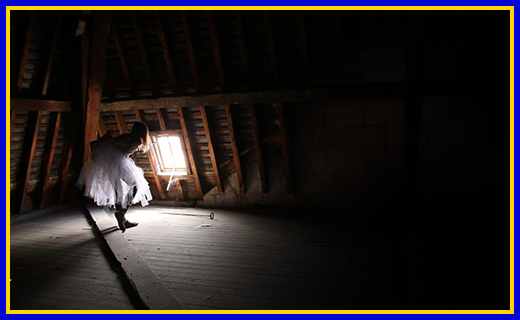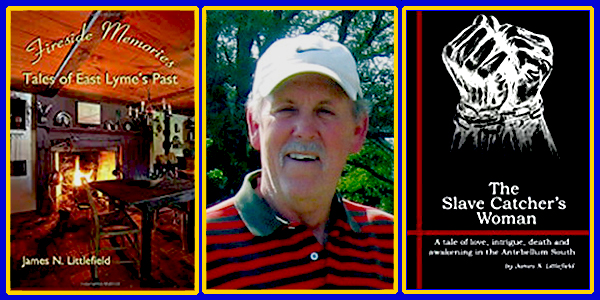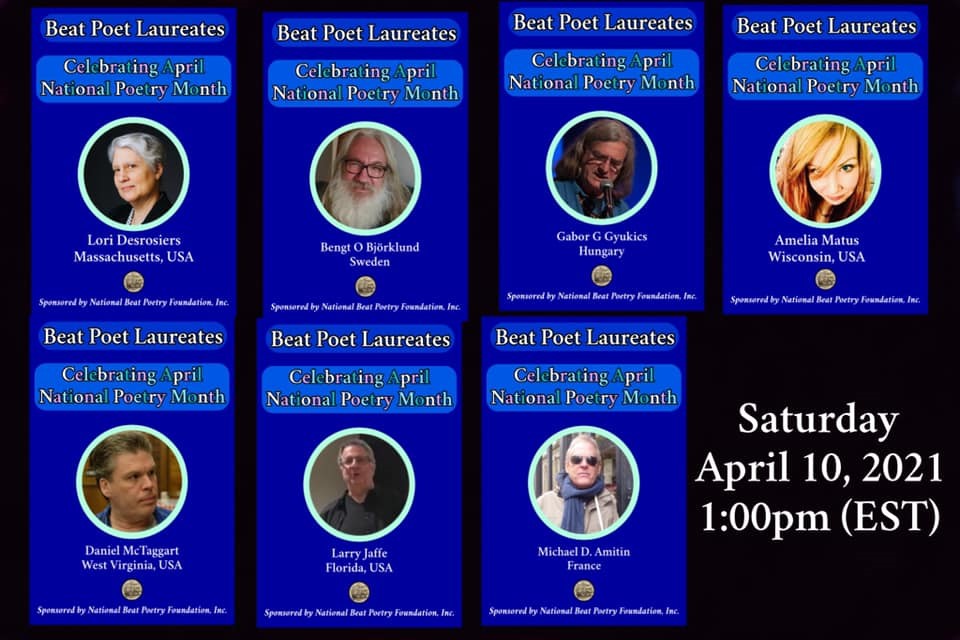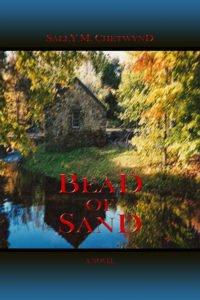
Thursday, April 8, 2021
The Life in Words and Ideas
Life gets busier all the time, doesn’t it? I’m still playing catch-up from my February overload. I’m getting there, but of course, I keep adding new projects and ideas to the list.
Words and thoughts occupy me constantly – probably most of us. It takes energy and discipline to sort through them and determine which items vying for my attention I will indulge. But whatever I decide, the energy and the action both prove my humanity, as they do each of us. As the 17th Century French philosopher Descartes said, as he pondered the reality of his own existence:
“I think, therefore I am.”

Rene Descartes
(1596-1650)
17th Century French philosopher, mathematician, and scientist
Along Descartes’ lines, here’s a link to an interesting article about today’s mechanization of philosophy, in an effort to delete the need for or essence of one’s soul.
“The decline and fall of language – and life”
The Conservative Woman e-zine
March 15, 2021

Frank Palmer
Dr. Frank Palmer is a philosopher and author. He was taught by Roger Scruton
who was his PhD supervisor and during the 1980s was part of a thinktank
of academics Roger formed to fight damaging trends in education. Frank’s
last book was Literature and Moral Understanding (Oxford University Press).
Palmer warns against this elimination of individualism, and I agree with him. What beauty and joy would we have in life without the infinite evidences and possibilities of creativity? I don’t plan to become an automaton anytime soon; I hope none of you plans to, either.
Keep playing with ideas. Every thing that exists started life as an idea.
To Tease Your Mind
Words … are a kind of natural resource;
it is impossible to have too many of them.
![]()
Robert Claiborne
(1919-1990)
writer, folksinger, and labor organizer
Robert Claiborne traveled with Pete Seeger and Woodie Guthrie, among others, in the 1940s and 1950s. When he and his wife began a family, they both turned to writing. He became an editor at Scientific American magazine, and later worked as both a writer and an editor on Time-Life science book series. When he wasn’t protesting the Viet Nam War or organizing labor unions, he wrote books and papers on many scientific topics, specifically written in layman’s language. He was instrumental in popularizing science books for the multitudes.
By the way, I couldn’t find a single photograph of Claiborne online. He might have sung in hundreds of concerts with Pete Seeger and Woody Guthrie, but he was obviously camera-shy. No sign even of an author photo from any of his book jackets. Nada!
On Writing Prompts
Writing prompts have as many purposes as there are writers out there. When you get stuck in your current WIP (“work-in-progress”), a writing prompt can unstick you. Or you may need a diversion from the heavy-duty research under which you are buried. Or it can be a mental exercise just for your own entertainment.
Prompts can be:
a word image – a squirrel, outstretched on a branch, naps in the sun
a single sentence – “Jared watched, frozen in horror as the beat-up jalopy he had just bought with the nickels and dimes he’d saved for months sailed off into the abandoned granite quarry, his brother at the wheel.”
a comparison – a delicate porcelain teapot from the house of wealthy British governor Thomas Hutchinson of Boston exhibited in tandem with a dented tin teapot from the house of Crispus Attucks, a colored Massachusetts laborer killed in the Boston Massacre
a photograph – any picture may inspire you to make a list of all the visible objects, which may set you to thinking about what you can’t see.
Another way to exercise your writing skills is to take any one of these and play with the infinite ways to approach a story. Maybe the first sketch is told from one character’s point of view, and the second is from another’s point of view. Sketches can be developed in different genres: What does this little scene sound like written as a gothic horror story? An historical romance? A science fantasy? A techno-thriller? A murder mystery? A comedy? A police procedural? A young-adult adventure? The possibilities are endless. That’s why and how every author gives readers a different story, even from the same prompt.
The idea is to let your imagination run wild without boundaries. You’ll surprise yourself with what emerges.
I don’t play with writing prompts often, but it’s fun to tackle one now and then, just to see what kind of creative, mental adventure my mind takes me on. Writer’s Digest magazine posts writing prompts regularly, and the photograph here is from a recent one. The snippet below is what emerged from my mind in ten minutes. Where is the story going? I don’t know. But there’s enough material here in this simple image to draw me in at least one of several possible directions – or rabbit holes.
GIRL IN A TUTU

Alice tumbled down the rabbit hole and thumped to the ground at the bottom. But in looking around her, she was not on the ground at all. She had landed on the wooden floor of an attic.
What had happened? A moment ago, she twirled on the stage in the middle of her routine at the dance recital. Out of nowhere, a large white rabbit wearing a blue brocade vest dashed between her legs and vanished into a whirling hole that had appeared without warning. Before Alice could adjust her steps, in mid-leap she was sucked into the vortex.
She got up from the floor, rubbing her bottom. She brushed at her tutu with her hands, looking around for the rabbit hole. But the only opening in the wall was a small window with four panes of dusty glass with daylight shining through. Had she traveled through that window to arrive here? And where was here?
She tiptoed cautiously to the window, which was fitted in the angle to the steep roof above, surrounded by heavy joists overlaid with narrow, rough-hewn, clay-caulked boards. She swiped at the grime on the window panes and peered out. A high overcast made the sky white, diffusing the light. A town sprawled below, edging a waterfront with brick buildings and sea walls made of heavy wooden piles. Large sailing vessels like those she’d seen in her school history books lay at the wharves, and workmen bustled about them, moving cargo in and out of holds.
Alice looked more carefully. Most of the men wore short pants, either secured at the knee or loose about the calf. Most had a pigtail of hair at the nape of their necks, tied with a cord into a queue, like a heavy version of the hand grip on her bicycle. She didn’t see any women until she looked beyond the waterfront to what looked like the center of the town, an open square filled with tents and booths where vendors hawked their goods. The women there all wore long skirts, ankle length to stay above the mud. Only the market square and the road leading to the waterfront were cobbled; the rest were unpaved. Horse-drawn carts and carriages threaded their ways awkwardly through the throngs on foot.
Not an automobile in sight! Where was she? Studying the scene before her, she found some buildings familiar, and realized that this was Dodgson Harbor, her own home town, but from a much earlier time. How had she come here? A small fear burned in her belly. How could she get back?
[to be continued … ?]
A Book Worth Checking Out (several, actually …)
James N. Littlefield
http://jimlittlefield.com/
The Slave Catcher’s Woman (2013)
Slavetaker: The Promise (2018)
History Matters: Tales of New England That Still Echo Today (2014)
Fireside Memories, Tales of East Lyme’s Past (2020)
My friend Jim Littlefield, a retired high-school teacher who led innumerable classes of students on archaeological digs throughout his community of East Lyme, CT, has written two powerful novels, set in the deep South, that deal thoughtfully with attitudes about slavery during the Civil War era. An able author and historian, he also posts a monthly column – “History Matters” – on tidbits of his town’s history in a local magazine. He now has two published collections of these columns.

The Slave Catcher’s Woman
Putting a Human Face on an Inhumane Subject
Jim’s debut novel deals with controversial subjects in perhaps the most humane manner I have ever encountered, with no apologies or political correctness. Coswell Tims, the protagonist, is a slave catcher, a profession viewed with distaste by society folks, but he conducts his business in the antebellum South with quiet pride with his well-trained pack of bloodhounds. He speaks in first-person narrative, in a wonderful colloquial vernacular, proof of Littlefield’s deep research. Although a product of his times, Tims proves to be a man open to change and new ideas. Don’t let this story get away from you.
Slavetaker: The Promise
This second novel is a sequel to The Slave Catcher’s Woman, as the American Civil War envelops Coswell Tims’ home territory of central Georgia, forcing Tims to choose on which values to stand.
History Matters: Tales of New England That Still Echo Today
History Matters: Tales of New England That Still Echo Today is the first collection of Jim’s Post Road Review monthly column, “History Matters.” The focus is more on the archaeological projects in which he engaged his high school students.
Fireside Memories, Tales of East Lyme’s Past
Fireside Memories, Tales of East Lyme’s Past, Jim’s second collection of Post Road Review columns, offers readers a chance to examine local history in a new and novel way. Unlike many traditional sources that just factually go about the telling of stories “long ago and far away,” this book utilizes a much different approach. Employing a kaleidoscope of viable resources at his disposal, author James Littlefield, weaves together his tales, bringing history back to life with his own personal, homespun touch. Through archaeology, the use of primary documents, interviews, cemetery records and personal reflections due to his (and his family’s) long time association with the New England town in question, Fireside Memories effectively introduces the curious reader to the town and people of East Lyme, Connecticut.
Word’s Worth
I’m in the middle of Jim’s second published collection of his “History Matters” columns, Fireside Memories: Tales of East Lyme’s Past. I noticed in two articles Jim’s use of the word “hearty” where I would have used the word “hardy.” Rather than assume that my choice is right without knowing the reason for Jim’s choice, I decided to compare these two words, which are obviously very closely related. Their differences are subtle in context, indicating that word choice is often a matter of preference, not necessarily right vs. wrong.
from Merriam-Webster Dictionary
HEARTY
adjective
1 a: giving unqualified support
b: enthusiastically or exuberantly cordial; jovial
c: expressed unrestrainedly
2a: exhibiting vigorous good health
b (1): having a good appetite
(2) abundant, rich, or flavorful enough to satisfy the appetite
3: vigorous, vehement
noun
plural: hearties
1: a hearty fellow also; a sailor
HARDY
adjective
1: bold, brave
2: audacious, brazen
3a: accustomed to dealing with fatigue or hardships; robust
b: capable of withstanding adverse conditions
It makes me think about how important it is for writers to become acquainted with as many words as possible, so that we can choose the exact one that will convey our message. What remains frustrating, often, is the lack of a word capable of embodying the exact mood or tone we are trying to express. How can this be, with all the words out there?
Calendar & Announcements
Saturday, April 10, 2021 – 1 pm (EDT)
National Poetry Month Goes International! Zoom with the ‘Beat Poet Laureates’ of the World!

This week features Lori Desrosiers of Massachusetts, Bengt O. Bjorklund of Sweden, Gabor G. Gyukics of Hungary, Amelia Matus of Wisconsin, Daniel McTaggart of West Virginia, Larry Jaffe of Florida, and Michael d. Amitin of France.
Afterwards there will be a meeting/party with breakout rooms to hang with the authors
and talk. Please click the link below to join the webinar starting at 1:00pm this Saturday, and every Saturday in the month of April.
https://us02web.zoom.us/j/82565012482
Sunday, April 18, 2021 – Noon – 6 pm
Rockport Poetry Festival – Open-Mike Poetry Reading
Six 50-minute reading sessions, 5 minutes per reader. Please PRE-REGISTER in advance with Bob Whelan at RockportPoetry@gmail.com Rockport, Massachusetts.
Open mics start at Noon on 4/18/2021 and a new session will start every hour on the hour until 6pm. The approximate length of each session will be 50 minutes and the reading time will be 5 minutes (including whatever introduction you may want to give).
The poets will be from all over the globe so the sessions will be sorted by time zones with those zooming from an earlier time zone going first. Please advance register by emailing RockportPoetry@gmail.com with READING REQUEST in the subject line. You will be notified of your scheduled time in a return email.
Friday, April 30, 2021 – Deadline for Submissions
Amesbury [Mass.] Public Library’s 18th Annual Kids’ Poetry Contest. Learn more about how to submit for this year’s contest. Grade K-5 contestants may enter this virtual poetry contest by writing a poem of any kind and emailing it to the library by April 30th.
Through June 24, 2021
WordPlay Art @ City Hall Exhibit at Amesbury [Mass.] City Hall
Get out of the house and away from your electronic screens! This beautiful art exhibit, courtesy of the Amesbury Cultural Council and the Poet Laureate Support Committee, incorporates poetry and words within the artwork by many local artists and poets. City Hall is now open and the gallery will be open for public viewing, located in the front lobby of City Hall at 62 Friend Street, Amesbury, Massachusetts. Hours: M-W: 8-4; Th: 8-7; F: 8-12 noon. Closed Sat & Sun.
[Thanks to Isabell VanMerlin of Merrimac Mic for sharing these calendar events!]
Sources
Wikipedia: Rene Descartes
https://en.wikipedia.org/wiki/Ren%C3%A9_Descartes
Frank Palmer, contributor to The Conservative Woman online magazine
https://www.conservativewoman.co.uk/the-decline-and-fall-of-language-and-life/
Wikipedia: Robert Claiborne
https://en.wikipedia.org/wiki/Robert_Claiborne
Writer’s Digest: Image and Short Story Prompt #111
https://www.writersdigest.com/wd-competitions/your-story-111?utm_content=154588966&utm_medium=social&utm_source=twitter&hss_channel=tw-18964696
Jim Littlefield – author and book images
http://jimlittlefield.com/



